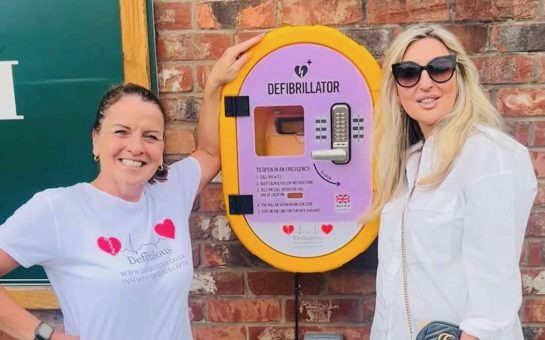A Stockport woman has recruited two friends to tackle the Great Wall of China after discovering that she has Huntington’s disease.
After being diagnosed with the faulty gene in 2015, Tanya Farry has been busy fundraising to raise awareness of the illness.
The Heaton Mersey local lost several family members to the incurable disease, which she later inherited from her father.
Caused by a defective gene that results in parts of the brain becoming damaged over time, its symptoms include memory loss, mood swings and involuntary movements.
Deciding to put her unpleasant diagnosis to good use, Tanya’s revealed that the fundraising ‘started on a bit of a whim’.
Fearing the ‘biggest FOMO of all time’, friend Katy Leeson offered her support, along with school mate Sharlene Hanley.
So far their fundraising efforts have included the Santa Dash and the Great Manchester Run, while a live karaoke event in Manchester raised £540 earlier this month.
Following its success, their next event will be a night of live music taking place on September 8 at The Spirit Store in Omagh, Northern Ireland, followed by an evening at their local comedy club in Heaton Moor in October.
The trio have raised £2,341.58 so far but need to reach their target of £10,000 to fund their Great Wall of China trek, taking place from April 6 –12, 2019.
The week-long trip will see them walking 35 miles over five days for six to eight hours a day, before finishing with a stop in Beijing.
Tanya told MM: “Three heads are better than one, and it will be great to be in China all together”
Money raised will go to the Huntington’s Disease Association (HDA) to support people affected by the condition and donations can also be made to Tanya’s JustGiving page.
The HDA was founded in 1986 and is based in Liverpool, helping those affected in England and Wales. Their dedicated team of specialists provide support via a telephone helpline, as well as making home visits.
The organisation’s research centre at University College London is ‘doing amazing work’, Tanya is proud to say.
They are trying to predict the onset of the condition – which ‘varies massively’ between individuals – and identify ‘any indicators to start treating people earlier’.
Tanya explained: “Fundamentally they are hoping for a cure”.
*You can donate to Tanya’s JustGiving page HERE.



